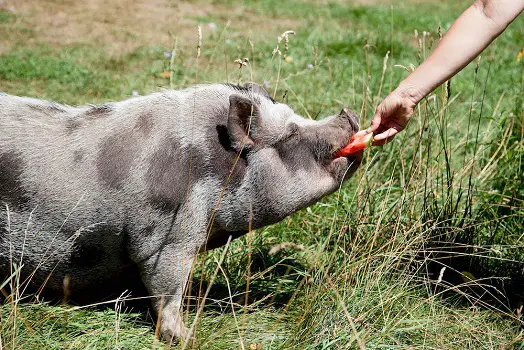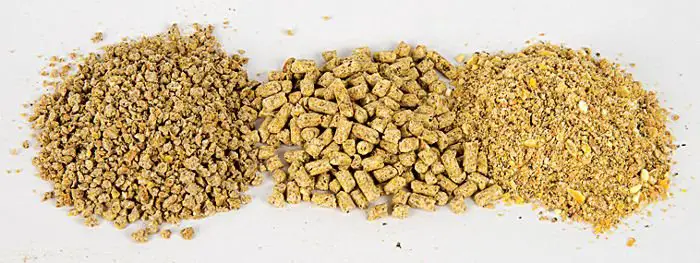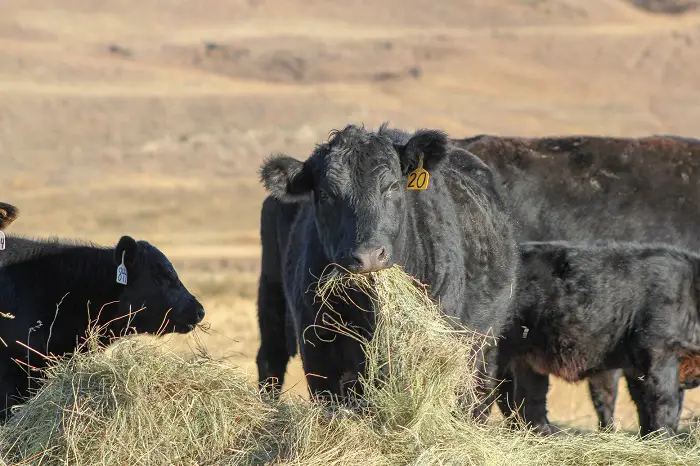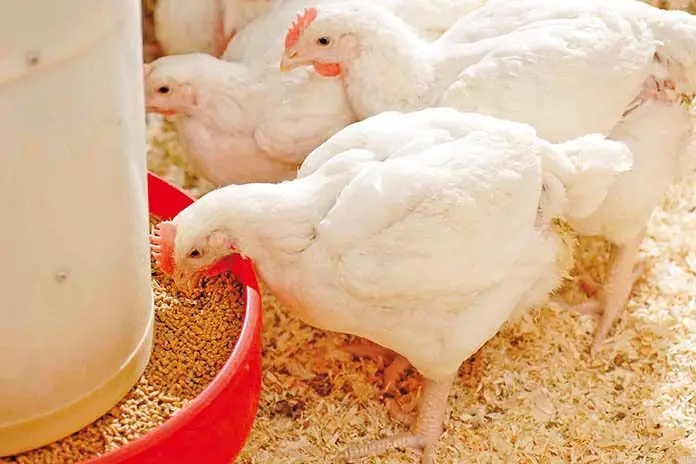Watermelon refers to both the plant and edible fruits of a tropical fruit cultivated and consumed worldwide. Watermelons are classified as berries but with a hard skin covering a juicy fruit with lots of seeds inside. Modern cultivars have far fewer seeds than original open-pollinated varieties. The fleshy part of the watermelon fruit can be eaten raw off the rind or juiced. Watermelons can also be picked and like other cantaloupes, they can be eaten whole including the rind if cooked. Watermelons were originally grown for their high water content and make a good addition to pig diets to cool them down since pigs have very few sweat glands.
Contents
Watermelon For Feeding Pigs & Nutrition
There are many varieties of watermelon cultivated worldwide but they are all grown for their fruit which is very juicy and refreshing when consumed. Since pigs are omnivores like humans they can also eat watermelons without any effect on their growth and performance as there are no known toxic chemicals in watermelons. Pigs can utilize the plant and fruit below we will look at the nutrient profiles of the various parts of the watermelon.
Watermelon Plant for Pig Feeding
Little is known about the potential to feed watermelon vines as part of a pig diet but they contain a reasonable amount of nutrients on a dry matter basis, for example, energy at 19.7 Mk/kg protein at 27%, and fiber at 16.7%. Some varieties have a strong smell which might be off-putting to pigs. Feeding crop residues to pigs is common practice in the tropics and where there is an abundance of residues so farmers can include some vines as part of their complete diet.
Can Pigs Eat Watermelon Rind?
The watermelon fruit by far is the most widely fed part of the watermelon, nutritionally it is not that dense due to the high water content of the fruit. The fruit is on average 90% water, with a protein level of 17% on average and fiber of 25%. The whole fruit is relatively digestible just above 50% digestibility and digestible energy of 9MJ/kg DM. Pigs can eat both the fleshy part and the rind of the watermelon, but as previously noted the nutrient contribution is quite low due to the high water content. Watermelon fruit is incredibly sweet which means they have a high sugar content which is highly digestible, care should be taken when feeding to piglets as this could lead to digestive upsets and/or scours.
Watermelon Seeds and Seed Meals
Watermelon seeds are a good source of protein and energy for pigs but need to be roasted, and have the oil removed before feeding. The resultant meal is high in fiber and crude protein which can help reduce the cost of feeding pigs. Watermelon seed meal is however deficient in essential amino acids methionine and lysine and hence should not be included in high levels in pig diets. A safe inclusion limit is 25% of the diet or to partially substitute other oils seed cakes like soya, cotton, rape, and sunflower meals. At higher levels of inclusion, the limiting amino acids will need to be supplemented, to optimize growth performance.
Benefits of Feeding Watermelons to Pigs
There are quite a number of benefits to feeding watermelons to pigs key among them are hydration and supply of vitamins and minerals. Watermelons are extremely juicy and this helps hydrate pigs which have very little in terms of sweat glands. Feeding watermelons to pigs especially in the afternoon provides a healthy snack packed with tasty water to keep them well hydrated. Water is a key element for the survival of growth of any animal hence this can boost the productivity of the pigs. Watermelon fruits are also rich in vitamins and minerals that help balance the nutrition of the pigs if fed as part of a complete pig diet. Watermelons also have a reasonable amount of dietary fiber in the fruit, seeds, and rind which helps improve digestion especially for adult breeding pigs. Feeding watermelons can also get rid of excess or rejected fruit that would have otherwise gone to the dump causing environmental pollution.
Can Pigs Sweat?
There is a common saying “I am sweating like a pig” not knowing where this came from, I do know for a fact that pigs do not sweat that much. For any animal to have proper thermoregulation, that is control its body temperature, the most effective way is by sweating. The moisture loss from the skin cools down the animal bringing down its core temperature. Unfortunately for pigs they have very sweat glands in relation to their body size which means sweating is not the best way for them to regulate their body temperature. This is the reason we see pigs taking mud baths to cool themselves in the heat of the day.
Other Plants Related to Melons That Pigs Can Eat
Watermelons belong to the same family with cantaloupes, pumpkins, and squashes, these plants have an almost similar nutrient profile to watermelons. All these melon fruits can be fed to pigs without any effect to their growth performance, as they are packed with energy, vitamins and minerals. Pigs also love these fruits and will readily take to them devouring them whole in raw or cooked form. Farmers can feed pumpkins, cantaloupes and squashes in moderation as part of a complete pig diet, where the fruits are available and cost effective to feed.
Conclusion
Pigs can eat watermelons and they love them as a snack fed as part of a complete pig diet. Watermelons are high in water which tends to limit how much nutrients pigs can get by consuming watermelons. The whole plant and fruit can be eaten by pigs benefiting from the nutrients in the watermelon. However, watermelons should be fed in moderation due to the dilution effect of the large water content and high sugar content that could lead to digestive upsets in young pigs. Feeding pigs, watermelons unfit for human consumption leads to savings in feeding costs and reduce environmental waste.




